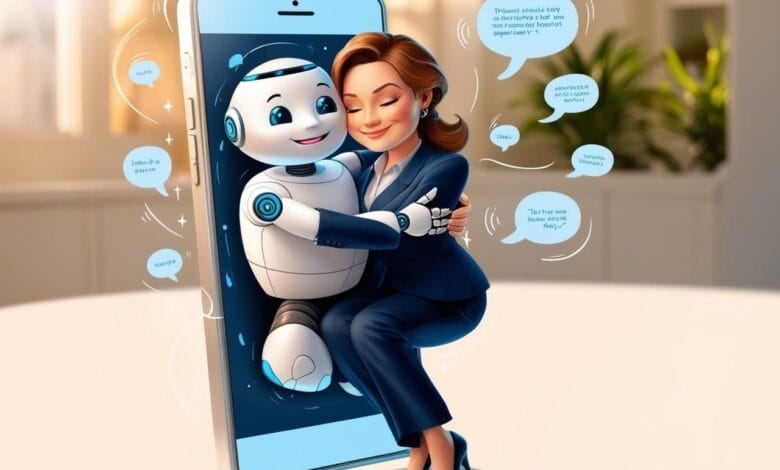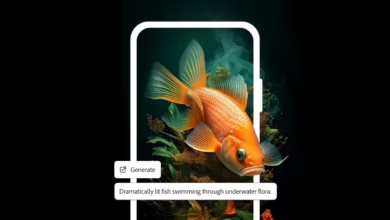Sharing Feelings with AI Chatbots: Exploring a New Avenue for Emotional Relief

In a recent publication in Applied Psychology: “Health and Well-Being”, researchers have uncovered a fascinating insight: communicating frustrations to AI chatbots can effectively alleviate negative emotions such as anger and fear. While this approach may appear unconventional, the evidence suggests that these digital companions might serve as a beneficial outlet for emotional relief, especially during times of stress or isolation.
In today’s hyper-connected world, where loneliness and emotional challenges are prevalent, the notion of seeking comfort from AI is gaining momentum. While AI chatbots are not a substitute for human interaction, they provide a distinctive form of support that is consistently accessible, non-judgmental, and, in many cases, remarkably effective.
Understanding Chatbots’ Role in Emotional Support
AI chatbots resonate with users primarily due to their ability to engage in emotionally supportive dialogues. Unlike earlier systems that offered generic responses, modern chatbots are engineered to identify emotional cues in text or voice inputs. They deliver responses that validate emotions without making users feel judged or dismissed.
Consider an individual expressing, “I’m feeling overwhelmed.” A chatbot might reply with, “I’m sorry you’re experiencing this. Can you share more about what’s causing these feelings?” Such responses feel personalized, encouraging users to disclose more about their feelings.
Many chatbots integrate techniques inspired by Cognitive Behavioral Therapy (CBT). By guiding users to challenge negative thoughts or view situations from alternative perspectives, chatbots help mitigate immediate emotional distress while fostering healthier coping mechanisms over time. For example, they might suggest reframing a difficult situation or breaking a problem into smaller, manageable steps.
The round-the-clock availability of these tools enhances their appeal. Whether it’s midnight or midday, users can access support without needing to schedule an appointment or wait for a friend to reply.
Practical Advantages of Emotional AI
Beyond offering immediate comfort, chatbots present practical benefits that make them an appealing option for many individuals:
- Global Reach: With support for multiple languages, chatbots can connect with individuals from diverse cultural and linguistic backgrounds, offering emotional relief worldwide.
- Anonymity: For those wary of sharing feelings with friends, family, or professionals, chatbots provide a safe haven. Users can express themselves freely without fear of judgment or stigma.
- Personalization: Chatbots that gather user feedback (with consent) can refine their responses over time, tailoring interactions to better meet individual needs. This creates a sense of familiarity and comfort, making the experience feel more personal.
These features render chatbots a versatile tool for emotion management, but it is crucial to acknowledge their limitations.
Complementary Role, Not a Replacement
While chatbots can diffuse intense emotions and offer temporary relief, they are not a replacement for genuine human interaction or professional mental health care. The depth of human relationships,empathy, shared experiences, and emotional subtleties,cannot be replicated by a machine.
Moreover, for individuals grappling with profound emotional challenges, a chatbot may not provide the level of care or insight required to address underlying issues. In such instances, it is essential to seek assistance from a therapist or counselor. Chatbots are most effective as a complementary tool, offering immediate support while users navigate more comprehensive mental health solutions.
The Future of Emotional AI
The future of chatbots in emotional well-being appears promising. As technology progresses, these tools are likely to become increasingly intuitive and empathetic, providing more profound levels of support. Developers are exploring methods to make interactions feel more conversational and less transactional, fostering a sense of being truly heard.
There is also potential for these tools to integrate more seamlessly with existing mental health resources. Envision a chatbot that not only provides support but also connects users to human counselors when necessary or offers guided mindfulness exercises tailored to the user’s emotional state.
The global reach of these tools holds significant promise. In regions where mental health resources are limited, chatbots could bridge the gap, offering emotional support to those who might otherwise lack an outlet. This does not eliminate the need for systemic improvements in mental health care but offers an immediate solution to some of the challenges people face today.
Concluding Thoughts
AI chatbots signify a shift in our approach to emotional support. While they are not intended to replace friends, family, or therapists, they offer something valuable,an always-available, non-judgmental space for sharing feelings and finding relief.
Today, these resources can significantly enhance our emotional well-being. They provide support during challenging times and offer a compassionate ear when it’s difficult to find help. Chatbots exemplify how technology can be both effective and relatable in addressing our emotional needs.








